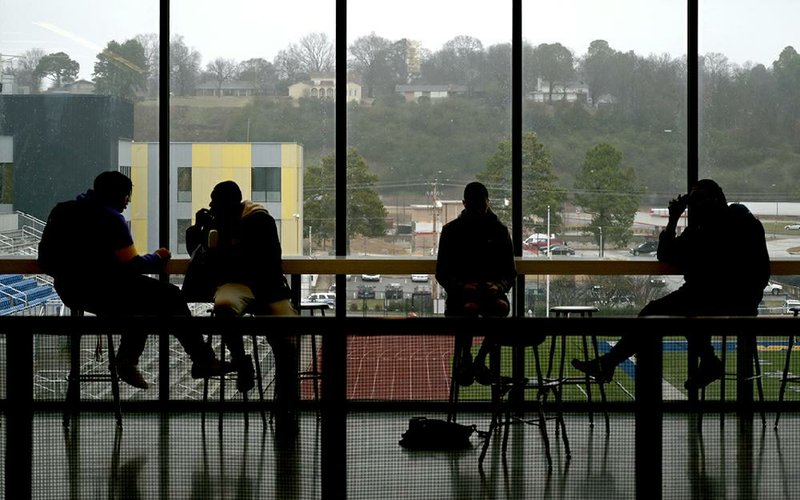An outside audit of the North Little Rock School District found the district had poor oversight of its curriculum and unclear policies for how administrators could manage how students were being taught.
Jim Ferrell, an auditor from the Iowa-based education firm Curriculum Management Solutions Inc. told the North Little Rock Board of Education Thursday night that fixing the school's culture and curriculum will take three to five years.
"The achievement level here in the district didn't get here overnight and so there is no quick fix," Ferrell told the board. "So, complex systems that have complex problems require complex solutions. And so there is not a shot in the dark that's going to let you sit here in a year and see these great advances."
Among the findings, Ferrell said the school district has "no overall curriculum management planning documents," that help administrators evaluate how students are taught; that many in the district "assume the textbook/purchased materials are the curriculum" and curriculum documents "does not meet standards" on guiding decisions around instruction.
An executive summary of the audit found there is no clear chain of command for administrators and unclear policies for planning and reviewing the curriculum. The audit also found that "Black students are underrepresented in the gifted and talented program and over represented as a percentage of students receiving special education services."
When it came to the school district's literacy program, auditors found the district emphasized the development of word recognition but was missing "speaking, writing, reading and listening in small groups," according to an executive summary of the audit.
"It's eye-opening, it's sad, but yet it's needed and it gives us some focus areas," said board member Natalie Wankum of the audit.
Ferrell said auditors looked at the district's board policies, achievement data, curriculum and budgets and conducted 43 in-person interviews with teachers, administrators, parents and students. Auditors also visited 167 classrooms, sat in on lessons, and surveyed 988 parents, teachers and administrators.
The conclusions from auditors are in-line with the warnings from the district's superintendent, Gregory Pilewski, who has called for overhauls to the district, to prevent direct state intervention.
Pilewski, who was hired in August 2020, called for an audit of the district at his first board meeting after being hired.
Since he took over as superintendent, the board of education has backed Pilewski's overhaul of everything from administrative jobs and titles to security on campuses.
"A change has got to come and he has made that change," said board member Dorothy Williams, of Pilewski.
Auditors recommended the school district create a plan to adopt and update policies on how to better manage the curriculum, work at increasing equity and equal access to rigorous programs, develop a plan to maximize the use of technology for students and teachers and create a performance-based budget.
In March, the board approved Pilewski's plan to reorganize administrative jobs in the district, adding seven new roles, while eliminating four. The plan meant some administrators lost their jobs in the district.
Also in March, the board approved a $1,750 raise for teachers in hopes of improving the district's poor retention rate.
Pilewski has previously warned that the school district could face direct state intervention if test scores don't improve. Board member Tracy Steele said he worried the district doesn't have three years to turn things around before state bureaucrats intervene.
Ferrell told the board, that the district had already begun implementing reforms before the report came out, speeding up the timeline for change.
"You're not starting from scratch today. You are already doing a lot of this planning and getting a lot of the hard stuff out of the way," Ferrell said. "You've already started a lot of this process."
